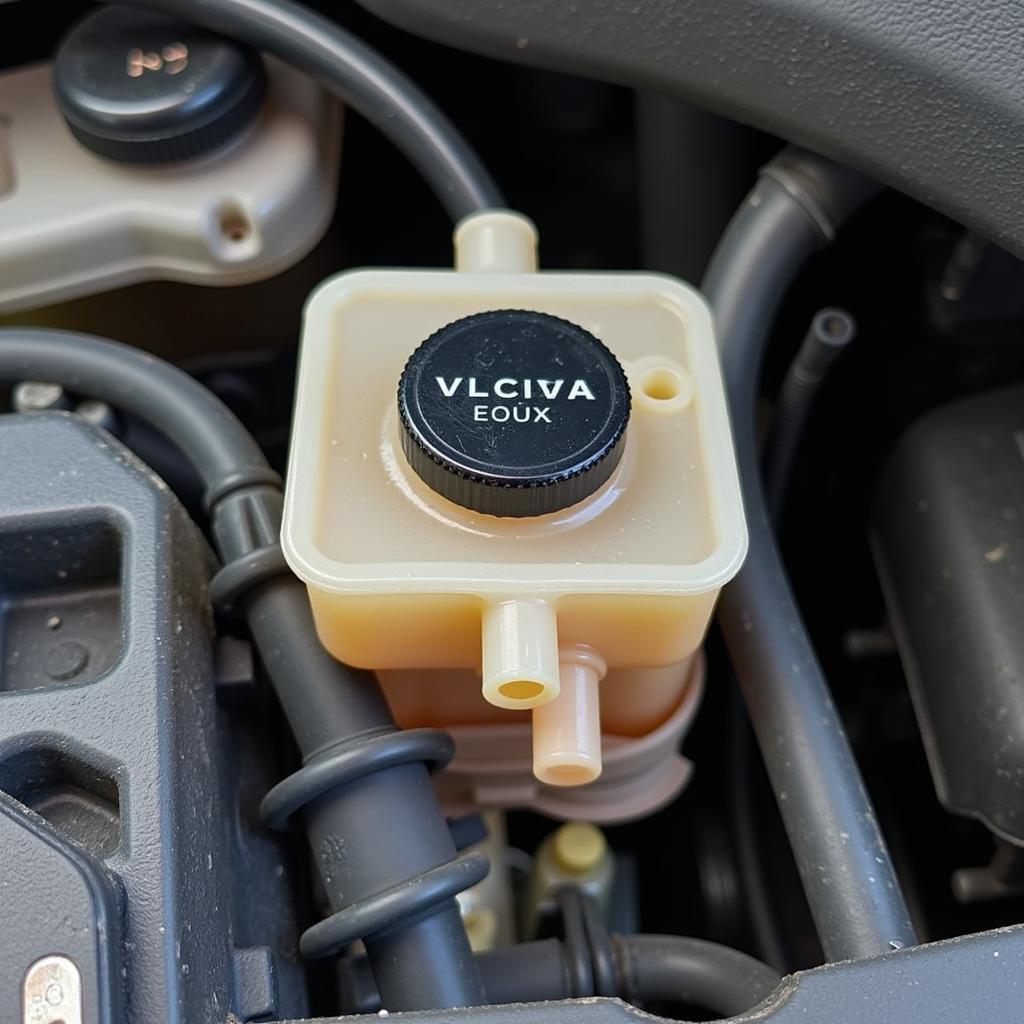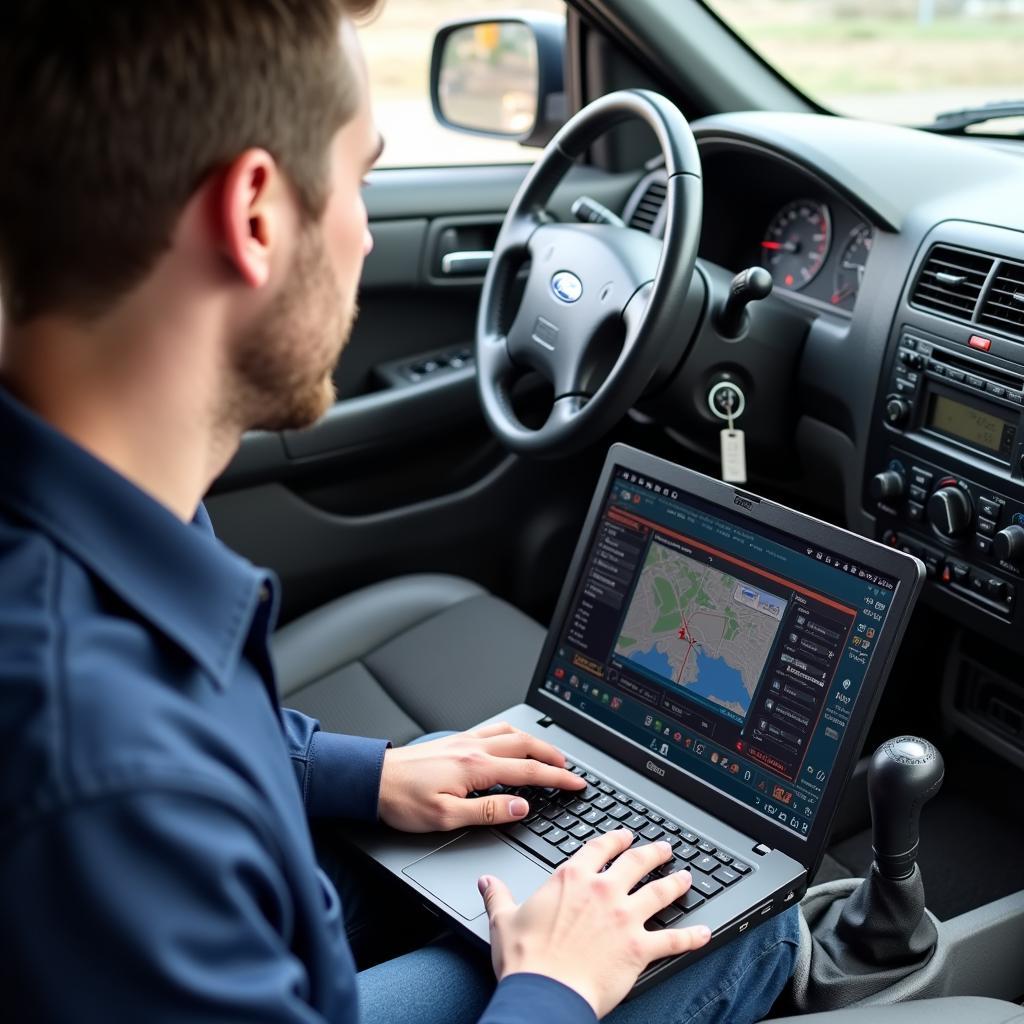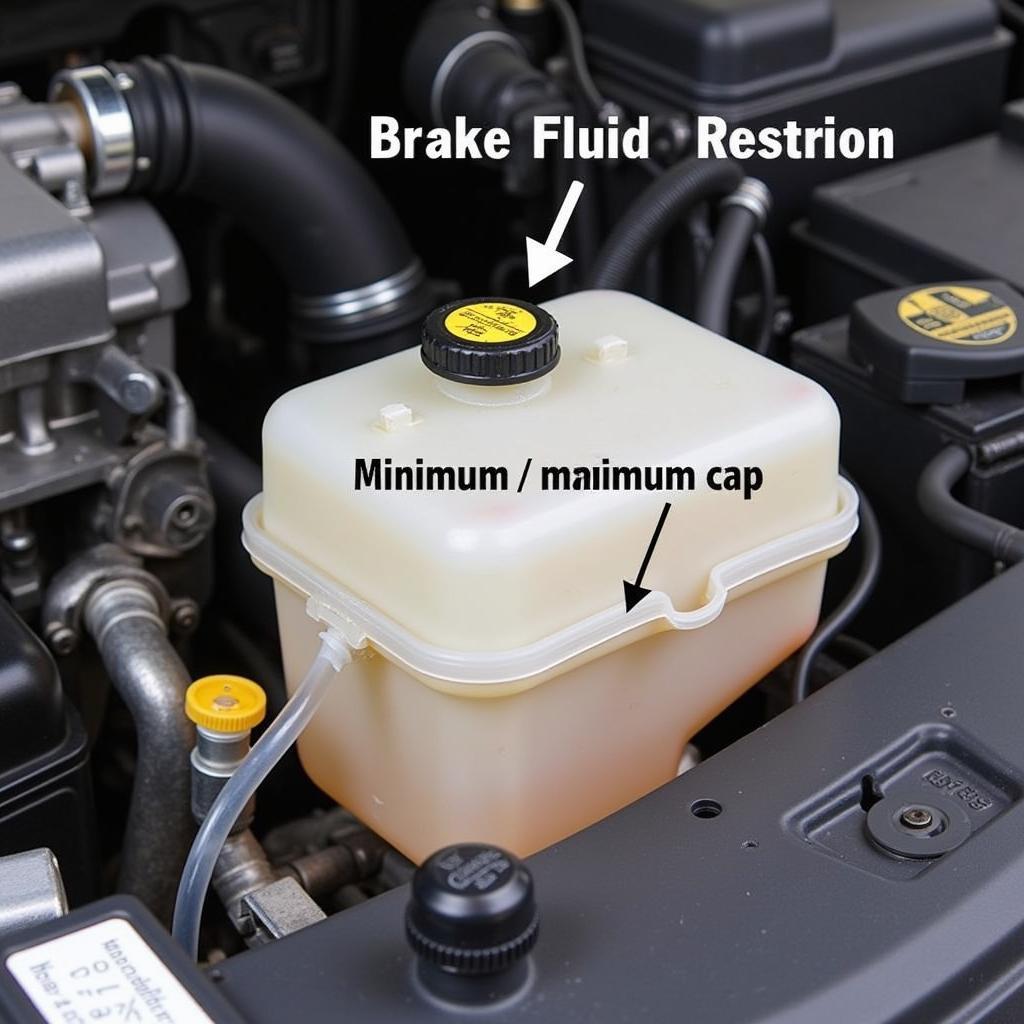The 2003 Ford Explorer brake warning light can be a frustrating issue, leaving drivers concerned about their safety. This article will guide you through the common causes, troubleshooting steps, and potential solutions for a 2003 Ford Explorer brake warning light, empowering you to address this problem effectively.
Understanding the Brake Warning Light
The brake warning light on your 2003 Ford Explorer serves as a crucial safety indicator. It alerts you to potential problems within the braking system, which could compromise your ability to stop safely. Ignoring this light could lead to dangerous situations, so prompt attention is vital.
Common Causes of a 2003 Ford Explorer Brake Warning Light
Several factors can trigger the brake warning light in a 2003 Ford Explorer. Understanding these potential causes can help you narrow down the issue and find the appropriate solution. These include:
- Low Brake Fluid: This is the most common culprit. A leak in the brake lines or worn brake pads can cause the fluid level to drop, activating the warning light.
- Worn Brake Pads: As your brake pads wear down, the brake fluid level in the master cylinder drops. Thin brake pads can also trigger a sensor that activates the warning light.
- Faulty Brake Sensor: The brake sensor itself can malfunction, illuminating the warning light even if there isn’t a problem with the brake system.
- Parking Brake Engaged: Sometimes, the simplest explanation is the correct one. Ensure the parking brake is fully disengaged.
- ABS Issues: While less common, problems with the Anti-lock Braking System (ABS) can also trigger the brake warning light. This often requires specialized diagnostic tools.
- Master Cylinder Problems: A failing master cylinder can lead to brake fluid loss and trigger the warning light.
 Low Brake Fluid in a 2003 Ford Explorer
Low Brake Fluid in a 2003 Ford Explorer
Troubleshooting the Brake Warning Light
Before rushing to a mechanic, there are a few steps you can take to troubleshoot the brake warning light on your 2003 Ford Explorer:
- Check the Parking Brake: Make sure the parking brake is fully released.
- Inspect the Brake Fluid Level: Open the hood and locate the brake fluid reservoir. Check the fluid level. If it’s low, add brake fluid that meets the manufacturer’s specifications.
- Check for Leaks: Inspect the brake lines and around the wheels for any signs of brake fluid leaks. Leaking fluid will appear as a dark, oily substance.
- Inspect Brake Pads: If you’re comfortable doing so, check the thickness of your brake pads. If they appear thin, they likely need replacement.
When to Seek Professional Help
If the brake warning light remains illuminated after performing these checks, or if you discover a leak or worn brake pads, it’s crucial to seek professional help. A qualified mechanic can diagnose the issue accurately using specialized diagnostic equipment.
“Ignoring a brake warning light is like ignoring a flashing red light at an intersection,” warns John Miller, ASE Certified Master Technician. “It’s a critical safety signal that shouldn’t be taken lightly. Addressing the issue promptly can prevent serious accidents.”
Remote Diagnostics and Programming
In some cases, remote diagnostics and programming can address the underlying issue triggering the brake warning light, especially if it relates to the ABS system. This innovative approach allows technicians to access your vehicle’s computer remotely to identify and resolve software-related problems.
 Remote Diagnostics Being Performed on a Ford Explorer
Remote Diagnostics Being Performed on a Ford Explorer
“Remote diagnostics and programming are transforming the automotive repair landscape,” says Sarah Chen, Automotive Software Engineer. “This technology allows us to address certain brake system issues quickly and efficiently, often without the need for a physical visit to a repair shop.”
Conclusion
The 2003 Ford Explorer brake warning light is a critical safety indicator. Understanding its potential causes and taking prompt action to address the underlying issue is essential for safe driving. While basic troubleshooting can sometimes resolve the problem, it’s vital to consult a qualified mechanic for persistent issues or suspected leaks. Remember, your safety is paramount, so never ignore this important warning signal.
FAQs
-
What is the most common reason for the brake warning light to come on in a 2003 Ford Explorer? Low brake fluid is the most frequent cause.
-
Can I drive my 2003 Ford Explorer with the brake warning light on? It’s not recommended. Driving with a potential brake issue can be dangerous.
-
How often should I check my brake fluid level? Checking your brake fluid level monthly is a good practice.
-
How much does it cost to fix a brake warning light issue? The cost varies depending on the underlying problem, ranging from a simple top-up of brake fluid to more complex repairs like replacing the master cylinder.
-
How can remote diagnostics help with brake warning light issues? Remote diagnostics can identify and resolve software-related problems within the ABS system, potentially resolving the issue without a physical visit to a repair shop.
-
Can worn brake pads trigger the brake warning light? Yes, worn brake pads can lower the brake fluid level and activate the warning light.
-
What should I do if I see a brake fluid leak? Do not drive the vehicle and immediately contact a qualified mechanic.

